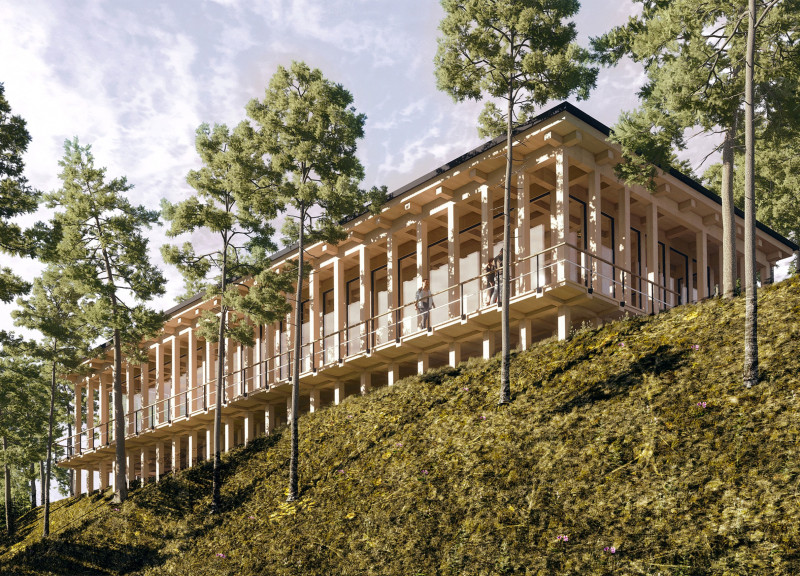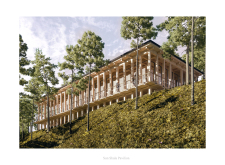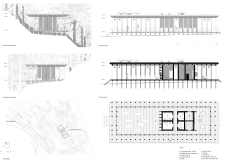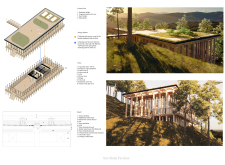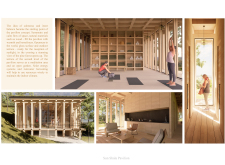5 key facts about this project
The Sun Shala Pavilion is a dedicated space for yoga and meditation located in Vale de Moses. Its design centers on principles of tranquility and balance, creating an environment that supports well-being. This pavilion connects indoor and outdoor spaces, reinforcing a sense of peace that is essential for its purpose.
Design Concept
The design emphasizes symmetry and flow, encouraging a natural movement of light and air throughout the space. By integrating natural elements, the layout fosters a calming atmosphere. This arrangement allows practitioners to feel connected to their environment, both inside and out, which is critical for mindfulness and meditation.
Floor Layout
The pavilion is spread across two levels. On the first floor, a spacious 80 m² area is dedicated to yoga practice. It also features vital facilities such as storage for yoga equipment, male and female locker rooms, a shower room, and a kitchenette. A terrace extends from the main floor, providing an outdoor area where users can engage with nature directly, enhancing their overall experience.
Sustainability Initiatives
Sustainability is a key aspect of the pavilion's design. It utilizes solar energy for heating and electricity, which reduces its environmental footprint. A rainwater harvesting system collects water from the roof, ensuring efficient use of resources. Wastewater is treated through a cleaning tank, emphasizing the commitment to eco-friendly practices in the building’s operation.
Interior Experience
Inside, the pavilion is warm and welcoming, with large openings that frame views of the surrounding pine forest. Natural light floods the interior, creating an inviting atmosphere for meditation and yoga. The thoughtful use of space and light enhances the experience for users, grounding them in their practice and reinforcing the pavilion’s role as a sanctuary for personal growth and reflection.
The blend of open spaces and natural views promotes a strong connection to the outdoors, making the pavilion a place for introspection and shared wellness activities. Each element works together to support the mission of fostering mindfulness in a peaceful setting.


